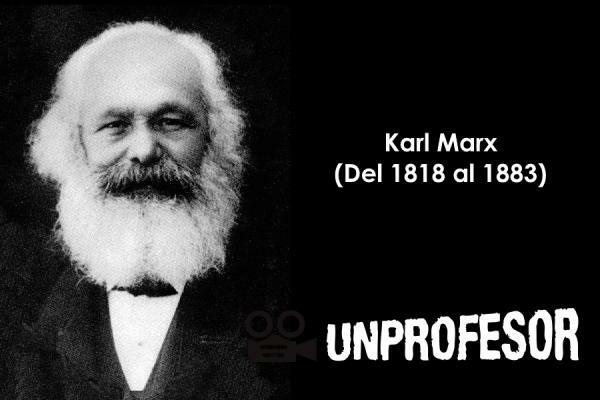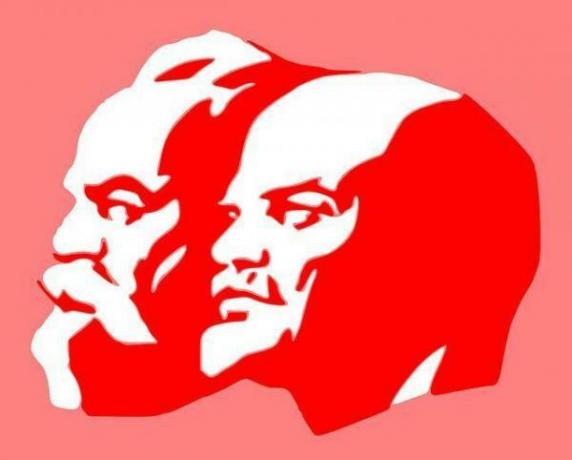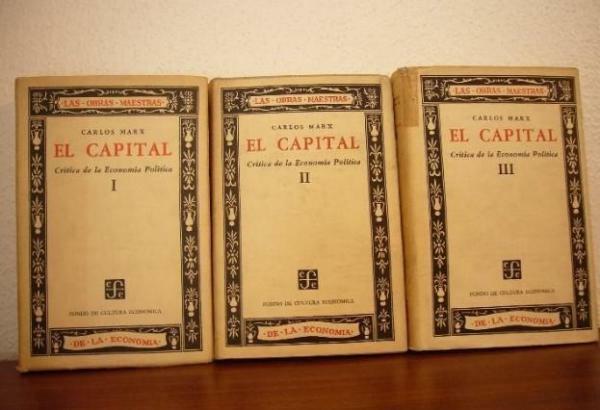Karl Marx- Short Biography

Karl Marx was a German philosopher who, together with Friedrich Engels, were the authors of one of the most extensive ideas and that brought more historical consequences: the Marxism, which he spanned from the Russian Revolution of 1917 to the fall of the Berlin Wall in 1989. During all this time, many of the political regimes that occurred proclaimed themselves heirs of his ideology. Next, in this lesson from a TEACHER we offer you a short biography of Karl Marx with the highlights of his life.
Index
- Karl Marx (1818 - 1883)
- Capital
- His work in the International Workers Association
- Objective of the socialist revolution
Karl Marx (1818 - 1883)
Karl Marx was born into a middle-class Jewish family; His father was a lawyer who converted to Lutheranism in 1824 to avoid the restrictions of anti-Semitic legislation. When Marx turned 18, finishing his high school studies in Trier, the city where he was born, he He enrolled at first at the University of Bonn, and then at the University of Berlin where he studied law combining it with the
history and philosophy studies at the university of Jena where he ended up getting his doctorate in 1841 with a thesis that dealt with the philosophy of Epicurus. Until then his thoughts were still those of a Hegelian idealist.In 1843 he married Jenny von Westphalen, a friend of hers since childhood belonging to an aristocratic family of Prussia, whose father was the one she made that Marx took a certain interest in the rationalist principles of the French Revolution and philosophers socialists.
Over time a radical democrat, he worked as a journalist and teacher, but due to his political ideology he had to leave Germany to settle in the city of Paris. In Germany he established a great friendship with Friedrich Engel who in time both would end up being the authors of Marxist ideology.
To elaborate this thought, he started from the criticisms received by previous socialists, such as Charles Fourier, Robert Owen and Saint Simón among others, as that he himself described as “utopian”, because they limited themselves to dreaming how the perfect society could be in the future, hoping that their establishment would be accepted unanimously.
Although it is true that some elements were taken from this thought, what both Marx and Engels really wanted to do was a scientific socialism that it was based on a systematized critique and on the invention of objective laws that would lead to a revolution to end bourgeois civilization.
In 1848 both embodied their ideologyCommunist Manifesto demanded by an underground revolutionary league set in the context of the European revolutions of the same year.

Capital.
We continue with this summarized biography of Karl Marx to speak now of the publication of "Capital". After the publication of the previous ideology, several revolutionary processes broke out in Germany, France, and Austria for which he was expelled from Belgium, which was where he was at that time to return again to Paris and later to Cologne where he edited another communist publication, the New Rhenish Gazette, also collaborating in activities of workers' groups.
By 1849 the magazine where he published was closed and he he was expelled from Germany for inciting armed rebellionAfter this event, he moved to London where he deepened his study of economics, building his own doctrine that he embodied in Capital, composed of three volumes of which only the first managed to publish, the other two were commissioned by Engels after his death.
This work was above all a historical analysis of the economy of the capitalist system in which Marx developed his theory by starting and pointing out the exploitation of the working class by the capitalist class as the latter seizes all the surplus value, which is what we know as capital gain produced by the workers, thus denouncing the capitalist economic system that he saw as the basis of the domination exercised by the bourgeoisie.
However, he knew that this economic system had a historical and immutable character that ended replacing feudalism for which it would take time to disappear by new ones ideologies, giving way to socialism. There would be many periodic crises that would be suffered due to the falls in the rates of profit that, over time, would face the two classes of interest irreconcilable giving rise to a revolution led by the working classes and the emergence of socialism as a new political, economic and Social.

Image: Open book !!
His work in the International Workers Association.
Karl Max, apart from being an inexhaustible activist of the workers' uprisings, in 1864 the International Workers Association (AIT) It gave him the opportunity to impregnate the world labor movement with his socialist ideology.
Much of his ideology was inspired by the struggle of trade unionism of British workers against the continental anarchist trend led by Mikhail Bakunin and Pierre Joseph Proudhon, with which Marx ended up triumphing, however, eventually he would end up sinking from the process revolutionary of the Paris Commune from the year 1870.
By this same year he ended up retiring from politics, although his influence persisted through others. German disciples like Wilhelm Liebknecht. In 1883 he died due to an inflammation of the respiratory system at the age of 64 and was buried in Highgate Cemetery (London). From there it was his friend Engels who ends up assuming the moral leadership of his ideology for another century.
Objective of the socialist revolution.
Marx pointed out that the ultimate goal he hoped for when that social revolution took place was the total and global independence of man, by repeal private property of the means of productivity which, after all, was the main cause of the imbalance among the working classes.
On this basis, he looked to a socialist future with ideas of equality, fraternity and freedom, notions typical of a democracy. On the subject of how the state and the economy should be organized he hardly said anything because of what he gave place to very varied interpretations among his own supporters, dividing into two branches mainly:
- The social democratic branch oriented to the defense of progressive improvements defending individual political freedoms and the parliamentary struggle
- The communist branch which ended up giving rise to the Bolshevik Revolution in Russia and to the creation of socialist states with a one-party dictatorship as it was under Stalin and Lenin in the Soviet Union and in China under Mao Tse-tung.
If you want to read more articles similar to Karl Marx- Short Biography, we recommend that you enter our category of Story.



